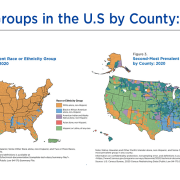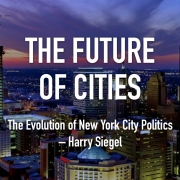The Cost of Biden’s Racialism
Joe Biden may have once bragged about his cooperative relations with segregationists, but he still arguably owes more to African-American leadership and voters than any politician in recent history. After all, it was black voters who bequeathed him the two critical victories in South Carolina and Georgia that led to his nomination in 2020. Perhaps that’s why he promised in his inaugural address to focus on the “sting of systemic racism” and fight encroaching “white supremacy.”
Adding action to rhetoric, Biden has embraced brazenly discriminatory policies that Barack Obama would likely have been too savvy to impose openly: special assistance to prospective black homeowners, race-based support for black farmers and black businesses, and attempts to end inflation by promoting “equity” in the financial sector through intrusive regulation.
Yet while Biden has placed racialism — making race a decisive factor in public decisions — at the heart of his political programme, in reality minorities may not prove the Castroite fifth column dreamed up by either the far-Right or their leftist doppelgängers. Minorities are more than genetic constructs; they are people with ambitions, families, and budgets. And sadly, Biden’s policies are not making their lives any better.
The inflation his administration deemed first temporary, and only a “high class” concern, is now destroying small minority-owned businesses and eroding their savings. Indeed, America’s embattled economy seems a crucial reason why minority support for Biden has been failing for months, including among black voters. By contrast, Republicans are building on Trump’s surprisingly large share of minority voters in 2020; they command the highest support from Hispanics and African-Americans in recent history. The fall of Roe could impact this, particularly among women, although many Latinos are also devout Catholics and many of them, as well as many black voters, also attend evangelical churches.
Indeed, cultural issues are part reason for the flight of minorities, include racial indoctrination in schools, ineffective law enforcement and questionable gender policies in primary schools — enough to spark a boom in home education among Latinos. A similar pattern is emerging among Asian voters, who played a critical role in San Francisco’s recall of progressive DA Chesa Boudin this month, and the defeat of progressive school board members a few weeks earlier. Similarly, the recent wave of GOP victories in Latino-dominated south Texas has ridden on the embrace of conservative social values and, perhaps most critically, reaction to the chaos unfolding at the border. When the Democrats start losing the Rio Grande Valley, a place they dominated for a century, you know things are changing.
Overall, Biden’s racialist focus also runs against a changing demographic reality. When Biden was growing up, African Americans were the primary racial minority. As late as 2005, black people and Latinos constituted 14% of the population. Today, however, the Hispanic population stands at 62 million, far outnumbering the 47 million African Americans. By 2050, according to Pew, the Hispanic population will swell to 30% of the population, more than twice the black share. Asians, meanwhile, will have grown from barely 12 million in 2000 to more than three times that number by mid-century. Taken together Asians and Latinos will account for 40% of Americans, and the vast majority of the racial minorities.
In modern America, then, political leaders need to transcend the old “black-white” paradigm embraced by Biden. Latinos and Asians (as well as a rising population of Africans from the continent or the islands) experienced very different histories than those descended from slaves or those who suffered under Jim Crow. Although many immigrants have also experienced discrimination; they also came here voluntarily to seek out a better life.
Read the rest of this piece at UnHerd.
Joel Kotkin is the author of The Coming of Neo-Feudalism: A Warning to the Global Middle Class. He is the Roger Hobbs Presidential Fellow in Urban Futures at Chapman University and Executive Director for Urban Reform Institute. Learn more at joelkotkin.com and follow him on Twitter @joelkotkin.
Homepage chart: Census.gov under CC 1.0 License.




 Beatrice Murch, under CC 2.0 License
Beatrice Murch, under CC 2.0 License
 Dave Reichert, CC 2.0 License
Dave Reichert, CC 2.0 License

